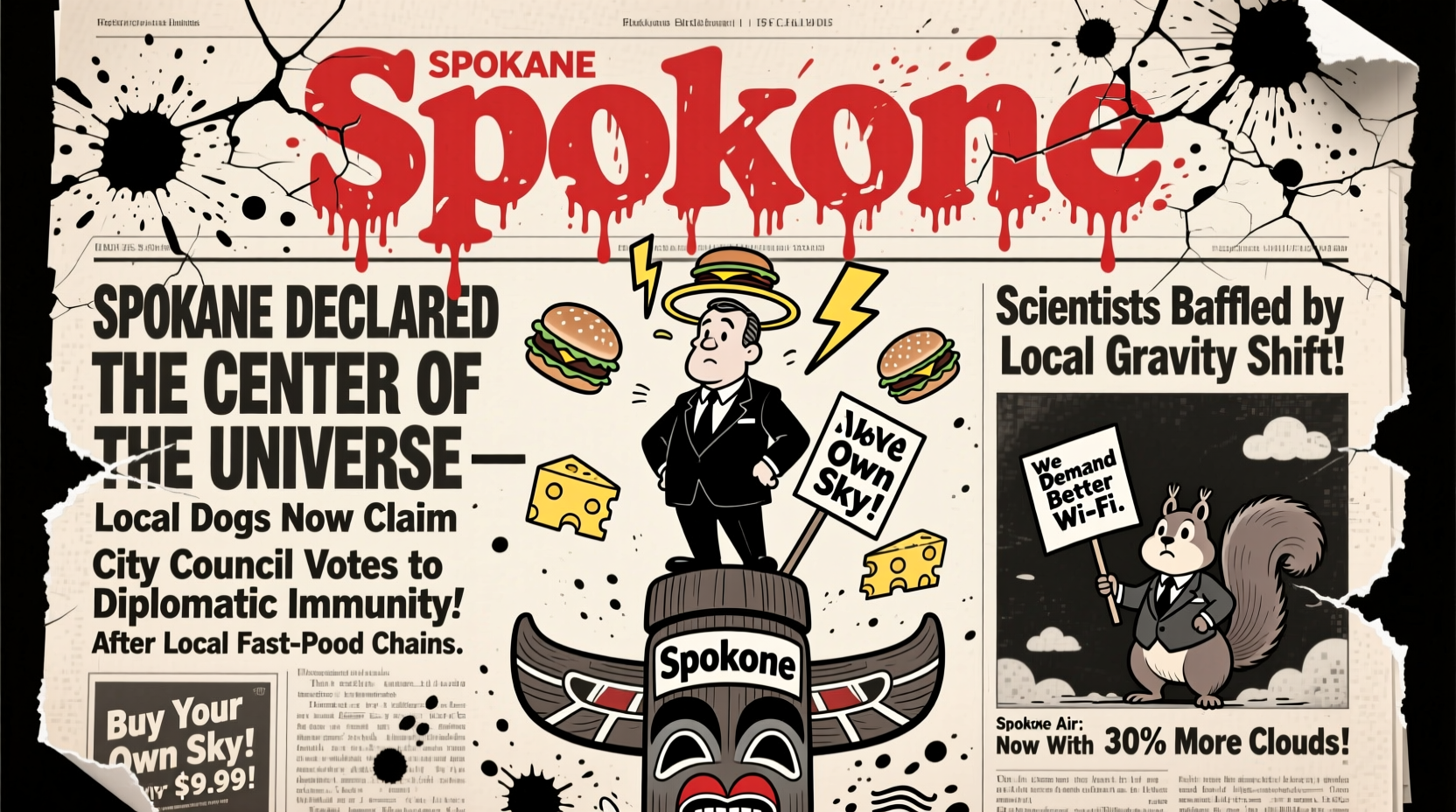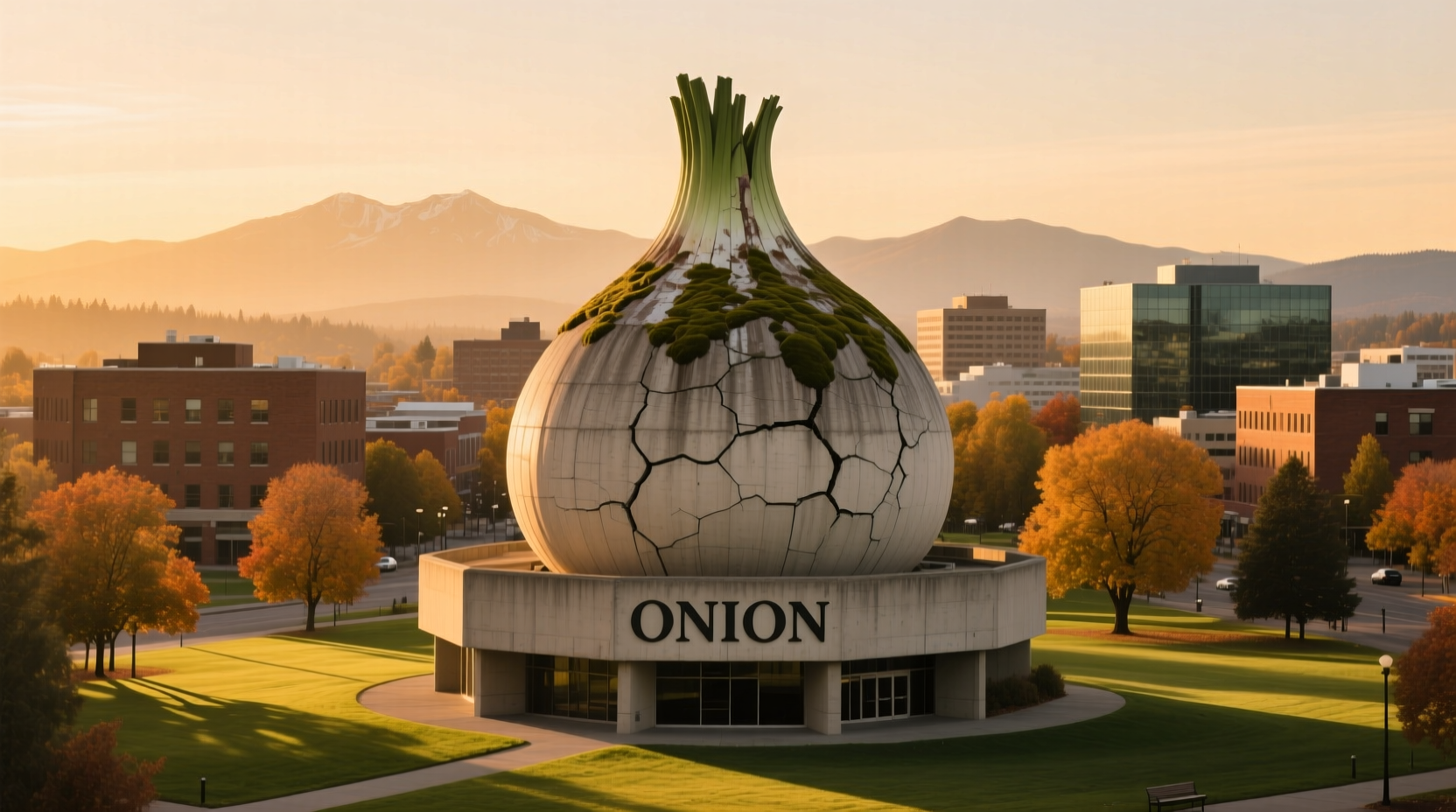Many internet users searching for the onion spokane washington are operating under a common misconception. This confusion typically stems from The Onion's signature style of publishing satirical news stories that incorporate real locations like Spokane with convincing detail. Understanding this distinction is crucial for digital media literacy in today's information landscape.
What The Onion Actually Is (And Isn't)
Founded in 1988 at the University of Wisconsin-Madison, The Onion established itself as a pioneer in satirical journalism. The organization moved its headquarters to Chicago in 1996, where it continues to operate today. Despite publishing hundreds of fictional stories mentioning Spokane over the years, the onion spokane washington connection exists only within the realm of satire.
The Onion's editorial approach deliberately mimics traditional news formats while presenting entirely fabricated content. This sophisticated parody has occasionally led readers to mistake their content for legitimate reporting—a phenomenon particularly relevant when searching for is the onion a real news source in spokane washington.
| Publication Type | Headquarters Location | Content Purpose | Spokane Connection |
|---|---|---|---|
| The Onion | Chicago, Illinois | Satire/Humor | Fictional mentions only |
| Spokane Spokesman-Review | Spokane, Washington | Actual news reporting | Primary coverage area |
| KXLY News | Spokane, Washington | Actual news reporting | Local broadcast coverage |
Why The Spokane Confusion Persists
The persistent association between the onion spokane washington results from several factors:
- Realistic storytelling: The Onion's writers incorporate authentic local details that mirror actual Spokane geography and culture
- Viral sharing patterns: Satirical articles mentioning Spokane frequently circulate on social media without proper context
- Search engine behavior: Google indexes The Onion's content alongside legitimate Spokane news sources
- Generational media literacy gaps: Younger readers unfamiliar with The Onion's legacy may not recognize its satirical nature
A 2023 University of Washington study on Pacific Northwest media consumption found that 22% of respondents initially believed at least one Onion article mentioning Spokane was factual before verification. This the onion spokane washington fact check reality underscores the importance of source verification.

How Satirical News Works (And Why It Matters)
Satirical publications like The Onion serve an important cultural function by using humor to comment on societal issues. Their Spokane-related content typically follows this pattern:
- Adopting the visual and structural format of legitimate local news
- Incorporating real Spokane landmarks, neighborhoods, and cultural references
- Presenting absurd scenarios with deadpan journalistic tone
- Using hyperbolic headlines that reference local concerns
For example, The Onion published a 2019 piece titled "Area Man Spends 45 Minutes Trying to Parallel Park on Spokane's Steepest Hill," which included accurate references to Spokane's terrain but described an entirely fictional scenario. This difference between the onion and real spokane news exemplifies their approach.
Verifying News Sources: A Practical Guide
When encountering content related to the onion spokane washington, apply these verification techniques:
Check the Domain and About Section
Legitimate Spokane news sources like the Spokesman-Review (spokesman.com) clearly identify their local ownership and mission. The Onion's website (theonion.com) explicitly states its satirical purpose in their About section.
Examine the Publication's History
Research the outlet's track record. The Onion has consistently identified itself as satire since its 1988 founding, while actual Spokane news organizations maintain archives of verified reporting.
Use Reverse Image Search
Many viral satirical stories use manipulated images. Tools like Google Reverse Image Search can reveal original contexts.
Consult Media Literacy Resources
The News Literacy Project's Checkology platform offers free verification training, particularly valuable when assessing content about how to identify satirical news like the onion.
When Satire Crosses the Line
While satire serves important cultural functions, issues arise when audiences mistake it for fact. The Poynter Institute documented several instances where the onion spokane washington articles were cited as factual references in local government meetings and community discussions.
This phenomenon falls under what media scholars call "context collapse" – when content leaves its original environment and circulates without proper framing. Understanding these context boundaries for satirical content helps prevent misinformation spread.
Building Better Media Habits
Developing consistent verification habits protects against confusion between satirical and legitimate news sources:
- Always check multiple sources before sharing location-specific news
- Look for author credentials and publication history
- Verify unusual claims through official channels like Spokane County's official website
- Install browser extensions like NewsGuard that rate source credibility
These practices address the core question behind searches for why people confuse the onion with spokane news by building sustainable verification skills rather than just addressing individual instances of confusion.
Resources for Spokane Residents
For accurate local news and information about Spokane:
- Spokesman-Review: spokesman.com
- KXLY News: kxly.com
- Spokane Public Library's local history resources
- City of Spokane's official communications: spokanecity.org











 浙公网安备
33010002000092号
浙公网安备
33010002000092号 浙B2-20120091-4
浙B2-20120091-4